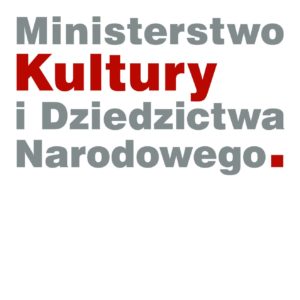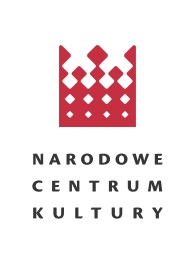news
the 102nd anniversary of the outbreak of the Greater Poland uprising
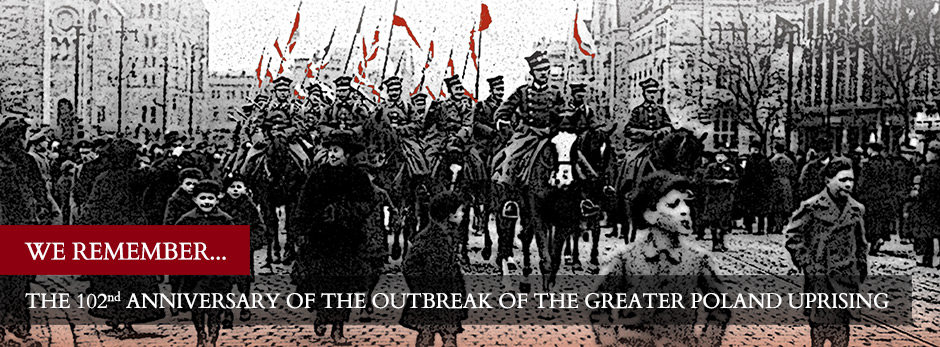
Two years ago the Poznan Philharmonic released an unusual album prepared especially for the 100th anniversary of the outbreak of the Greater Poland uprising. “The Greater Poland Symphony 1918. Songs of the Greater Poland Uprising” is a unique musical meeting of the past and the present. On the same album we can find “The Greater Poland Symphony 1918” by Marek Sewen, commissioned by the Poznan Philharmonic on the occasion of the 100th anniversary of the outbreak of the uprising (performed by the Poznan Philharmonic Orchestra and the Poznan Nightingales led by Łukasz Borowicz) and songs from the period of the uprising, songs from a hundred years ago, but – one might say – in “new packaging”.
Eight new a cappella choral works presented then for the first time on the album are contemporary arrangements of melodies sung by the participants of the Greater Poland uprising or written later to honour the heroic insurgents. Lifting the spirits, comforting, reassuring – over the last decades they were frequently arranged, often in the traditional, marching style.
We requested young Polish composers for a new insight: Marek Raczyński, Dominik Puk, Jakub Szafrański and Jan Krutul. We asked them to look from their own perspective and not to be afraid to arrange them according to their own understanding and individual sentiment. To try to speak to a contemporary listener, who lives in a totally different reality, through military songs. They carried out their task brilliantly.
The songs from the uprising were recorded by Poznan Chamber Choir conducted by Bartosz Michałowski. On the 102nd anniversary of the outbreak of the Greater Poland uprising we would like to remind one of them – the famous “Rota”, this time arranged by Dominik Puk: here
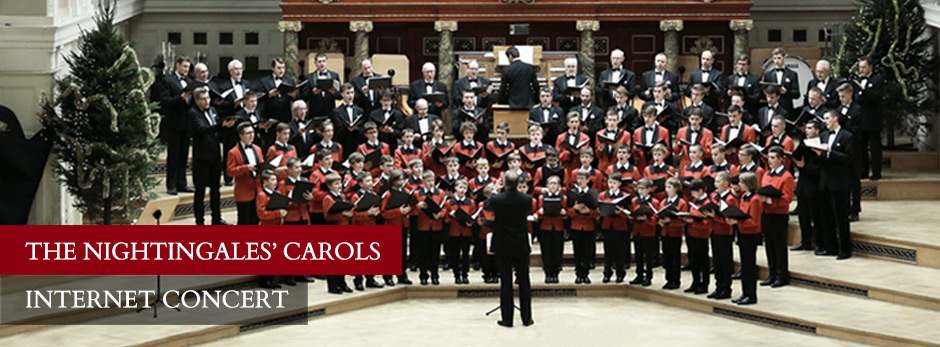
Carols performed by the Poznan Nightingales fill the program of the next Internet Concert, to which we invite you on the post-Christmas Monday on the 28th of December at 7 p.m.
The Nightingale caroling has become a long tradition. It started in 1945, right after the choir reopened its activity. First in the Poznan church dedicated to All Saints at Grobla Street, then in the AMU Concert Hall. Many people, not only the residents of Poznan, cannot imagine the Christmas season without these concerts.
Whole generations were raised on the carols arranged, among others, by Prof. Stefan Stuligrosz and performed by the Boys’ and Men’s Choir of the Poznan Philharmonic. In the times of the People’s Republic of Poland the albums of the Nightingales (they recorded seven of them back then) were the top-selling recordings of carols. They have maintained their popularity until this day.
The Nightingale carols used to accompany, and still do, celebrating Christmas at Polish homes. We listen to them willingly, though in this special season it also might be worth returning to the old traditions Prof. Stefan Stuligrosz told about in one of the interviews: ‘Every evening from Christmas till the feast day of Our Lady of Candlemas our whole family used to sing for a quarter of an hour. On Sunday afternoons we would sing even for an hour. Father played the mandolin, and I – an out of tune Stradivarius bought from the Gypsies…’
PERFORMERS:
Boys’ and Men’s Choir of the Poznan Philharmonic The Poznan Nightingales
Maciej Bolewski organ
Maciej Wieloch conductor
PROGRAM:
- Carols arranged by Stefan Stuligrosz
Wśród nocnej ciszy
Lulajże Jezuniu
Adeste fideles
- Carols arranged by Jan Maklakiewicz
W żłobie leży
Gdy śliczna Panna
Gdy się Chrystus rodzi
- Carols arranged by Stefan Stuligrosz
Dzisiaj w Betlejem
W dzień Bożego Narodzenia
Jezus malusieńki
Przybieżeli do Betlejem
Tryumfy Króla Niebieskiego
***
Subsidy from the resources of COVID-19 Counteraction Fund

***
WELCOME TO OUR CHANNEL!
Ladies and Gentlemen, thank you for being with us. We cannot meet you at the concerts in the AMU Concert Hall, but knowing how important the contact with art is to you, we keep preparing online music meetings.
Thank you for appreciating our efforts. Thank you for the e-mails and phone calls, for taking an interest in our actions in these difficult times, for the acknowledgements and the willingness to financially support our work, expressed by many of you.
We would like to thank every person who is willing to support us with any amount of many – every zloty counts.
The donations can be paid to the account of our institution:
Filharmonia Poznańska
ul. Święty Marcin 81
61-808 Poznań
account number: 90 1090 1359 0000 0000 3501 8949
The message accompanying the transfer should say: Darowizna – wsparcie dla Filharmonii Poznańskiej.
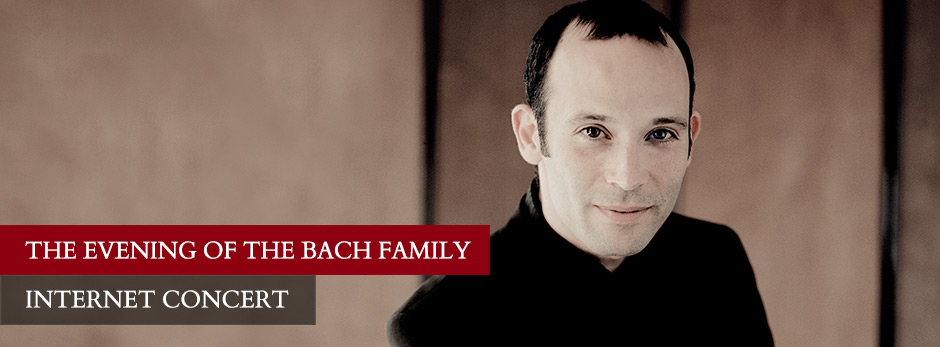
The music of father and son, Johann Sebastian Bach and Carl Philipp Emanuel Bach, can be heard at the next Internet Concert on Friday, 18th of December at 7 p.m.
Nowadays the figure of Jan Sebastian Bach is often put first, later his sons: Wilhelm Friedemann and Carl Philipp Emanuel (from the first marriage of Johann Sebastian with Maria Barbara), as well as Gottfried Heinrich, Johann Christoph Friedrich and Johann Christian (from the second marriage with Anna Magdalena).
It is worth bearing in mind, however, that for almost two hundred years the Bach family significantly contributed to the development of the history of music. The clan was so associated with this field of art, that in Thuringia, where the family members lived, every musician was called a “Bach”, no matter if he was related to this family or not.
Johann Sebastian became described as “the father of the great Bachs” when his sons left their home town for other European destinations, where they became famous. Their nicknames derived from the places where they lived for the longest time and worked the most intensively. That’s why Carl Philipp Emanuel is called the Berlin or the Hamburg Bach. His Symphony in F Major was written in Hamburg (in the years of 1775-76), where in 1768 he took up the position of cantor after his godfather, Georg Philipp Telemann.
Out of many piano concerts by Johann Sebastian his Concerto in D minor is one of the most popular among pianists. And though probably it is a transcription of an unknown work, the authors of the “Concert Guide” state that “both in the piano part and in the orchestra accompaniment, notably in the excellent counterpoint, one can see the mastership of Bach”.
We invite you for the evening of Bachs.
PERFORMERS
Martin STADTFELD piano
Ariel ZUCKERMANN conductor
Poznan Philharmonic Orchestra
PROGRAM
- Carl Philipp Emanuel Bach (1714-1788), Symphony in F Major H.655, Wq 183/3
Allegro di molto
Larghetto
Presto - Johann Sebastian Bach (1685–1750), Piano Concerto in D minor BWV 1052
Allegro
Adagio
Allegro
***
Subsidy from the resources of COVID-19 Counteraction Fund

***
WELCOME TO OUR CHANNEL!
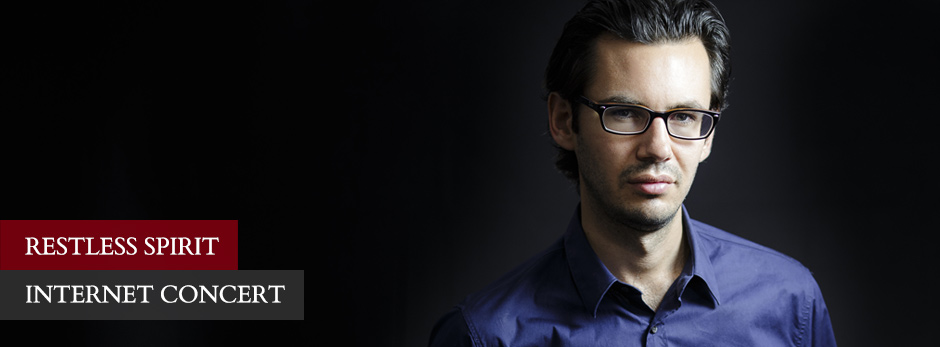
Excellent and well-known to the Poznan audience artists: the pianist Martin Stadtfeld and the conductor Ariel Zuckermann, will be the heroes of the next Internet Concert to which, along with the Poznan Philharmonic Orchestra, we invite you on Friday on the 11th of December at 7 p.m.
In the December evening we will listen to the Piano Concerto No. 1 by Ludwig van Beethoven. Magdalena Łoś wrote about that work in the program of the Poznan Philharmonic concert, when it was performed by Piotr Anderszewski (8th of February 2019):
Regardless of the doubts concerning the chronology, Beethoven’s Concerto in C Major, Op. 15, was the first one published from the collection of piano concertos and it became number “1”. It was composed in the 1790s in Vienna, however Beethoven postponed its publication until 1801. Meanwhile he had been playing it, testing, altering, improving… He guarded it jealously as his valuable possession and a strong point in the repertoire of a concert pianist. It was back then, when the audience admired the artist in that particular role – of a virtuoso and a brilliant improviser, and the subsequent performances of the concerto spread its fame. It magnetized the public. Among numerous testimonies probably the most impressive is the description of Carl Czerny, who attended the concert in Berlin in 1796, when in all likelihood Beethoven performed the Concerto in C major, Op. 15. Czerny recalls tears flowing from the eyes of the listeners during the famous improvisations of the composer. Hardly anyone could resist that great deal of emotion. Czerny also admires the beauty and the originality of Beethoven’s musical ideas, as well as the boldness of the style in which he presented them. Despite leading the audience to tears, he could finally burst into laughter, as if mocking their reaction and the state he put them into.
Three versions of the original cadences to the first movement of the Concerto in C major, written down in 1809, are a priceless evidence which gives us an insight of the improvisational skill of the composer. He himself highly rated his work. Right before its publication he expressed an opinion that it is one of his best musical pieces so far. Its style refers to the piano concertos of Wolfgang Amadeus Mozart in many ways (including the presence of trumpets and timpani, which was not obvious back then) and it also foreshadows Beethoven’s original musical language manifested by the sound of the aforementioned instruments or the rhapsodic second slow movement with the hypnotizing lyrical piano part in a marvellously dreamy mood. The energy and the earthy, whimsical humour leading us often into surprising directions of the final danceable rondo present the restless spirit of Beethoven, well-known from many of his subsequent works. In the opening movement it is also passionate and optimistic.
PERFORMERS:
Martin STADTFELD – piano
Ariel ZUCKERMANN – conductor
Poznan Philharmonic Orchestra
PROGRAM:
- Ludwig van Beethoven, Piano Concerto No. 1 in C Major, Op. 15
Allegro con brio
Largo
Rondo. Allegro
Cadences – Martin Stadtfeld
***
WELCOME TO OUR CHANNEL!
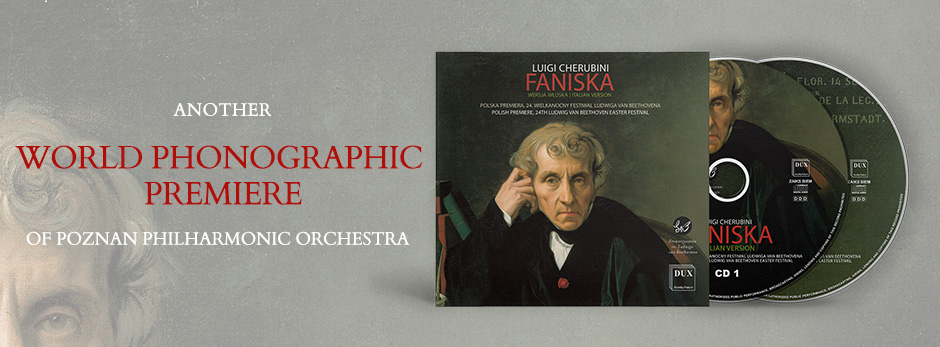
We can joke that this year Easter fell in… October, as it was then that due to the pandemic the Ludwig van Beethoven Easter Festival, scheduled for April, was held. Traditionally it included a concert dedicated to forgotten opera works, the spiritus movens of which was Łukasz Borowicz, our Chief Guest Conductor.
Also traditionally one of the cycle’s performers was Poznan Philharmonic Orchestra. This time at the National Philharmonic in Warsaw (on the 20th of October) “Faniska” by Luigi Cherubini was heard. You can now listen to this work in its full version on albums. The double CD “Luigi Cherubini, Faniska” has just been released by the DUX label.
The opera (with the libretto by Joseph Sonnleithner) was commissioned by the directorship of Hofoper in Vienna in April of 1805. The premiere performance took place in the Viennese Kärntnertortheater on the 25th of February 1806 in the presence of the emperor Franz II. The work fascinated Ludwig van Beethoven so much, that he decided to compose an opera. And he wrote one: “Fidelio”.
The action of “Faniska” takes place in Poland, in one of the castles of magnates in the area of Sandomierz. Both characters, Zamoski and Rasinski, are the estranged rulers of the adjacent voivodeships. The main plot concerns the efforts to free Faniska, the wife of Rasinski, who is being imprisoned by Zamoski in the dungeons his castle. The story finishes with a happy end.
The album was recorded with the participation of Natalia Rubiś (soprano), Krystian Adam Krzeszowiak (tenor), Katarzyna Belkius (soprano), Robert Gierlach (basso-baritone), Tomasz Rak (baritone), Justyna Ołów (mezzosoprano), Piotr Kalina (tenor), Poznan Chamber Choir (prepared by Bartosz Michałowski) and Poznan Philharmonic Orchestra. The whole ensemble was led by Łukasz Borowicz.
The album, which is another world phonographic premiere in the discography of Poznan Philharmonic Orchestra, has just been released – you can purchase it in good music stores.
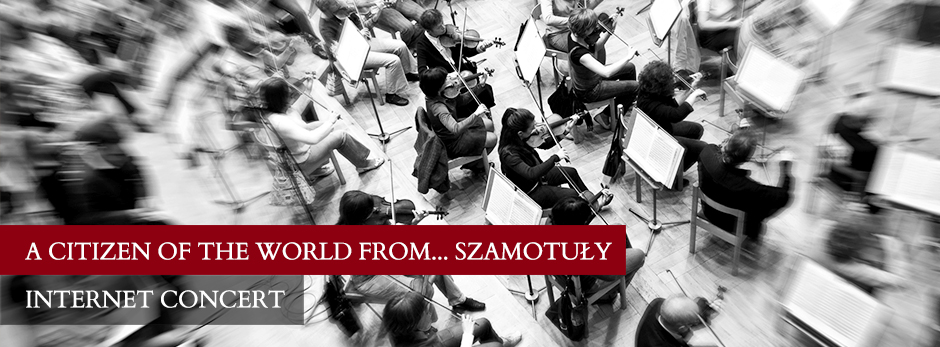
Among numerous music anniversaries celebrated this year there is also the 170th birthday anniversary of Franz Xaver Scharwenka, the hero of our next Internet Concert held on Friday, the 4th of December at 7 p.m.
Franz Xaver Scharwenka was born in a Polish-German family in Szamotuły, where he spent the first several years of his life. Here he had taken his first steps in music. At the age of nine the family of Scharwenka moved to Poznan, and six years later – to Berlin, where Franz Xaver graduated from gymnasium and began his musical studies. He inscribed his name in history not only as an excellent composer and pianist, but also as an organizer of musical life and pedagogue. In 1881 he founded the Conservatory in Berlin and in the years of 1891-1898 he ran the Scharwenka Music School in New York City. He was so respected in America that when he composed his only opera “Mataswintha” it was staged in the Metropolitan Opera in New York. He was also the author of “Methodik des Klavierspiels”, published in Leipzig in 1907. He was friends with Franz Liszt and was highly valued by Johannes Brahms.
In Poland he has been rediscovered for some time now and Poznan Philharmonic has a share in it by including his musical pieces in the repertoire (as well as by recording an album of his works, published in 2011 by Naxos).
Scharwenka completed his Symphony in C minor, Op. 60 in the beginning of 1882, however the premiere performance wasn’t held until almost two years later, on the 1st of December 1883 in Königlichen Akademie der Künste in Copenhagen. In “Signale für Musikalische Welt” one could read that “the work was generally appreciated. Particularly beautiful Scherzo and Adagio, while the first and the last movement movement are too lengthy and not really refined.” (Mikołaj Rykowski, The Polyphony of Life, 2018). Was the first review correct? Judge by yourselves.
PERFORMERS:
Łukasz BOROWICZ – conductor
Poznań Philharmonic Orchestra
PROGRAM:
- Franz Xaver Scharwenka, Symphony in C Minor, Op. 60
Andante — Allegro non troppo
Allegro molto quasi presto
Adagio
Allegro molto quasi presto — Adagio — Tempo I — Allegro molto
***
Co-funded by the Minister of Culture and National Heritage as part of “Muzyka” programme managed by Institute of Music and Dance. Resources provided by Culture Promotion Fund from surcharges imposed on state-monopoly games under art. 80, par. 1 of the Gambling Activities Act of 19 November 2009.
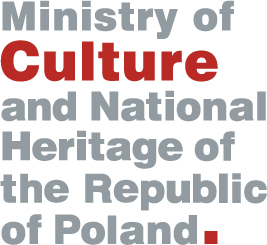 | 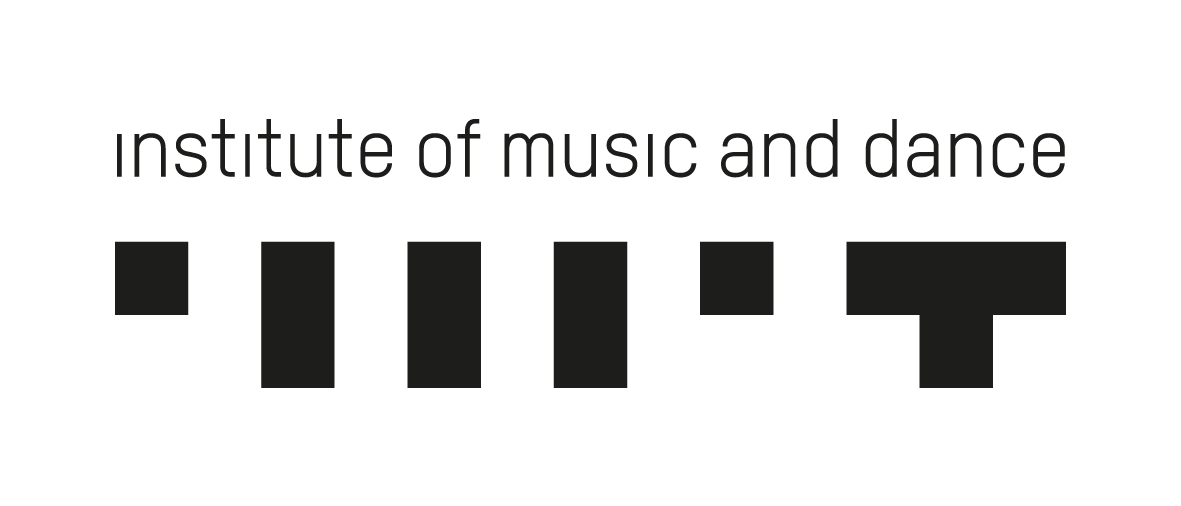 |
Partner:
 |
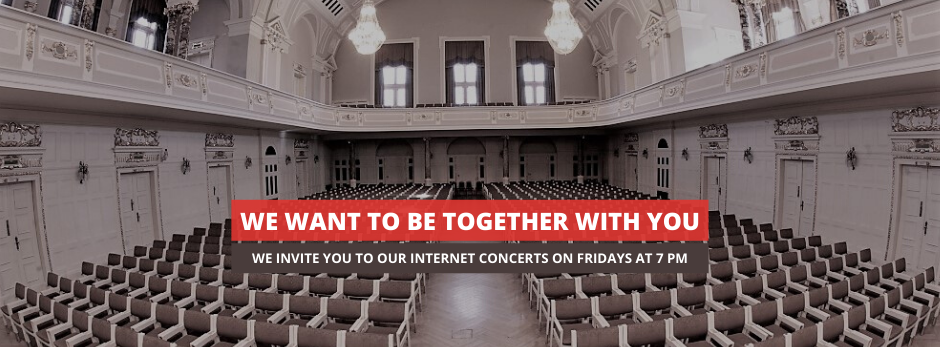
In relation to the epidemiological situation and the government’s decision to close cultural institutions until at least the 27th of December we would like to inform that the concerts of Poznan Philharmonic will be broadcast on the Internet till that time. We invite you to Internet Concert every Friday at 7 p.m.
During the forthcoming concerts we will present you works by Roman Statkowski and Michał Bergson (27th of November), as well as Franz Xaver Scharwenka (4th of December). For more detailed information about these and subsequent concerts please check our website and Facebook profile.
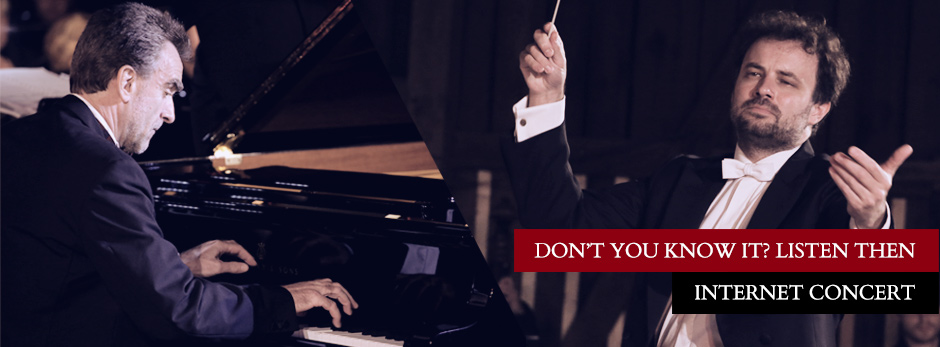
It can be said that the next Internet Concert scheduled for Friday the 27th of November is a… double jubilee concert. In 2020 we celebrate the 95th death anniversary of Roman Statkowski, coming from Szczypiorno near Kalisz, and the 200th birthday anniversary of Michał Bergson.
Roman Statkowski composed the two-act opera “Filenis”, based on a libretto inspired by Herman Erler’s drama, in 1987. The work had to wait seven years for the Warsaw premiere. It was not staged until a year after an international success in 1903, when the piece won the 1st prize at an international competition in London. “Filenis”, as well as the second opera of the composer, “Maria” (based on the same-titled poetic novel by Antoni Malczewski) are among the most outstanding artistic achievements of Roman Statkowski.
By that concert we would like to present you the figure of Michał Bergson, a Polish composer of Jewish origin. The Bergson family, which included numerous eminent merchants and bankers, had played a significant role in creating the city of Warsaw for several generations. Incorporating the music of Michał Bergson in the concert’s repertoire was directly inspired by the discovery of the manuscript of “Concerto symphonique pour piano avec orchestre”, Op. 62 in a London antiquarian bookshop and its purchase by the Poznan Philharmonic. The finder was Jonathan Plowright, an excellent British pianist, who will perform the concert and who, along with the Poznan Philharmonic Orchestra led by Łukasz Borowicz, recorded an album with Michał Bergson’s music. The CD, published by DUX label and titled “Michał Bergson, Concerto symphonique pour piano avec orchestre, Op. 62/ Music from the opera Luisa di Monfort” was released at the beginning of November and is another world premiere in the discography of Poznan Philharmonic Orchestra.
PERFORMERS:
JonathanPLOWRIGHT– piano
Łukasz BOROWICZ – conductor
Poznań Philharmonic Orchestra
PROGRAM:
- Roman Statkowski
Introduction to the opera Filenis - Michał Bergson
Concerto symphonique pour piano avec orchestre, Op. 62
***
Co-funded by the Minister of Culture and National Heritage as part of “Muzyka” programme managed by Institute of Music and Dance. Resources provided by Culture Promotion Fund from surcharges imposed on state-monopoly games under art. 80, par. 1 of the Gambling Activities Act of 19 November 2009.
 |  |
Partner:
 |
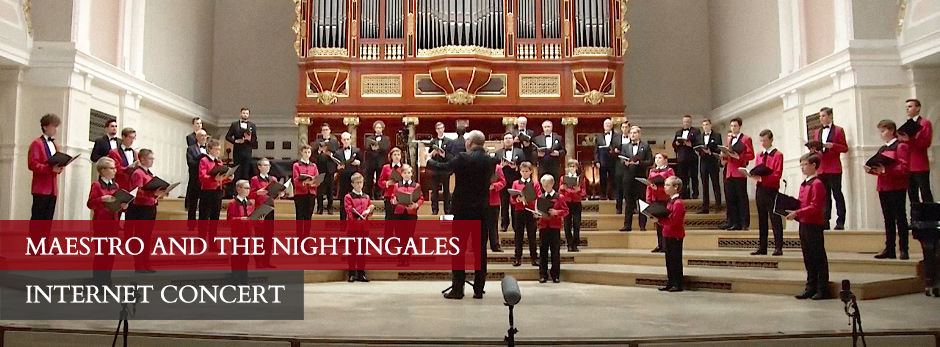
Next Friday, on the 20th of November at 7 p.m. we invite you for another Internet Concert of Poznan Philharmonic.
This evening we will listen to The Poznan Nightingales at a concert commemorating the choir’s founder, Prof. Stefan Stuligrosz.
Stefan Stuligrosz was a conductor, composer, organist, lecturer at the Academy of Music in Poznan (he held the post of the rector of that institution for five years), chairman of the Henryk Wieniawski Musical Society. However, it was The Poznan Nightingales choir that he considered his magnum opus. He had spent several decades on creating the ensemble of a unique and always discernible artistic image.
Boy’s and Men’s Choir of the Poznan Philharmonic The Poznan Nightingales is a phenomenon in Poland in every way. The ensemble achieved international fame by singing in almost all European countries, as well as in the United States, Canada, South Korea and Japan, has been led by its founder, Prof. Stefan Stuligrosz, for 72 years. Even shortly before his death (let us remind you that Prof. Stefan Stuligrosz died on the 15th of June 2012 in Puszczykowo at the age of 92) the Scoutmaster, as the choirsingers have called him for decades, led rehearsals and conducted during the concerts.
On the 100th anniversary of Maestro’s birthday The Nightingales sang a concert dedicated to his memory. The program include works written by the Scoutmaster.
PERFORMERS:
The Poznań Nightingales Boys and Men’s Choir of the Poznań Philharmonic
Maciej BOLEWSKI – organ
Maciej WIELOCH – conductor
PROGRAM:
- Stefan Stuligrosz
Veni Creator
Angelus Domini – Ave Maria
O ziemio polska
Dobry Pasterzu
O Matko miłościwa
***
Co-financed from funds of the National Cultural Centre under the program “Culture on the Net”.
